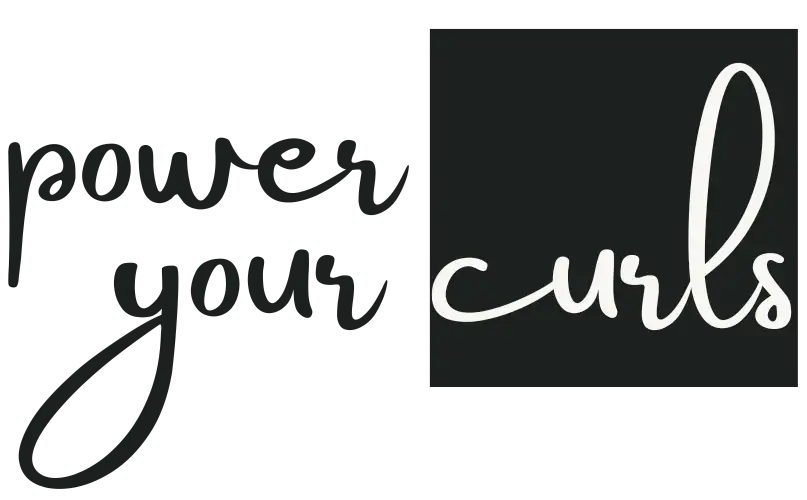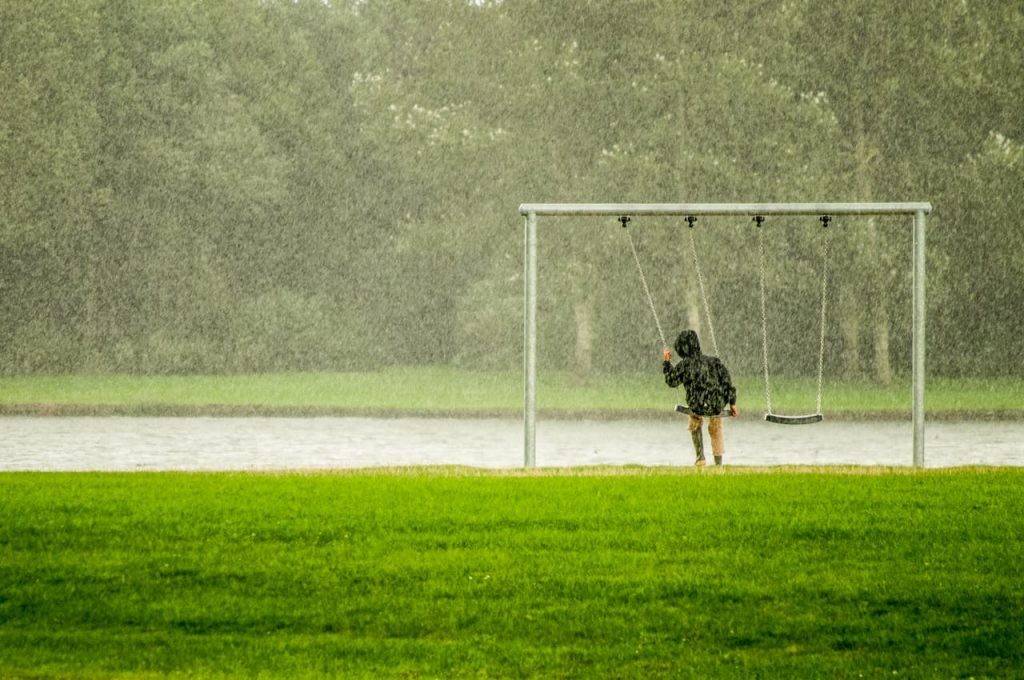
Rain is such a hassle, especially when it unexpectedly pours when you go outside. However, it usually rains the most in February in the UAE, and the average yearly rainfall is less than 120mm.
Despite its rare occurrence, this begs the question: can rainwater bring positive or negative effects to hair?
According to experts, rainwater is also soft water, which means it’s free from pollutants and good for the hair. It also has tons of benefits compared to tap water, which is treated with chemicals like chlorine and fluorine.
In this blog post, we will understand the science behind rainwater and its impact on hair. We will also recommend tips to keep hair manageable while being exposed to rainwater.
- The Chemistry of Rainwater
- What are the benefits of rainwater?
- What are the disadvantages of rainwater?
- How Can You Identify Polluted Rainwater?
- How to Use Rainwater to Improve Hair Health
- Is Rainwater Good For All Hair Types?
- How To Protect Hair From Acid Rain?
- How to Fix Hair Damage From Acid Rain
The Chemistry of Rainwater

Before we talk about how rain affects hair, let’s study its chemical composition.
No chemical additives – As mentioned above, rain water is safe and has no chemicals like chlorine.
Mineral Content: Rainwater is also soft water because of its low levels of minerals such as calcium and magnesium. However, some studies show that condensation and evaporation filtered out the minerals.
pH Level: The pH level of rainwater is around neutral pH of 7, which, again, is different from the slightly alkaline nature of tap water. The natural hair pH balance is between 4.5 and 5.5.
Pollutants: While rainwater could be harmless, it could also contain pollutants depending on the sources it absorbs. For example, harmful acid rain can be caused by chemical reactions when compounds like sulfur dioxide and nitrogen oxides are released into the air.
Human activities caused acid rain because of the different chemicals released into the air. For example, power plants release the majority of sulfur dioxide and much of the nitrogen oxides when they burn fossil fuel, including coal.
What are the benefits of rainwater?

Soft water: With the rainwater’s good composition, it can be perfect for hair washing. It doesn’t have the harsh chemicals and minerals that cause frizzy, damaged, and dry hair.
This is the difference from tap water, which is hard water that contains high amounts of chlorine, magnesium, calcium, and other minerals that can make the hair brittle, frizzy, and dull.
When it isn’t polluted, rainwater offers a natural, effective, and earth-friendly way to improve hair shine.
Hair cleansing: Rainwater helps remove dirt, sweat, and detergent buildup from the scalp. These substances could clog follicles and thin out hair strands.
Hair defining curls: Rainwater helps define curls by reducing frizz and adding moisture. Curls are prone to dryness, so maximum hydration from rain can help maintain their shape and bounce.
Help support hair growth: Without harsh chemicals and minerals, rainwater can be gentle. This means it may not directly help with growth, but it supports healthier hair.
Best for lathering products: The rain’s pristine qualities can also help with the efficacy of hair products like shampoos and conditioners. Hair products will lather more effectively when it is exposed to uncontaminated rainwater.
The lack of minerals enhances the performance of hair products and can even extend shelf life.
Improve hair color: The lack of mineral deposits from rainwater makes it ideal for colored hair. The minerals or contaminated water could eventually dull hair color over time.
With pure and uncontaminated rainwater, it can retain colored hair’s vibrancy and depth.
What are the disadvantages of rainwater?
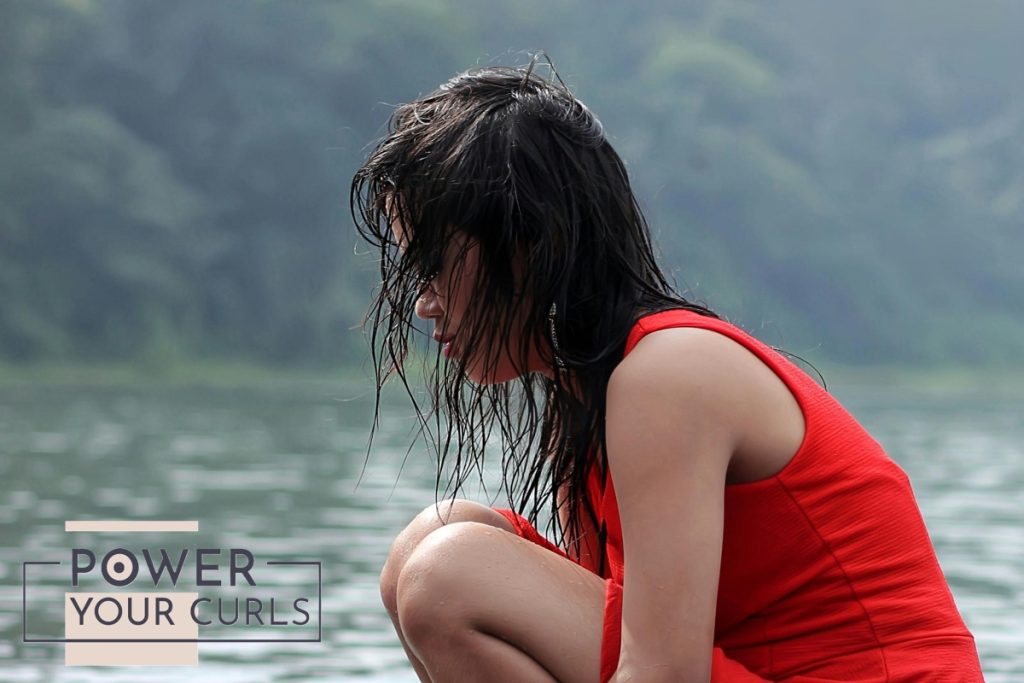
Despite its good benefits, rainwater, when it’s polluted, will obviously cause negative consequences once it is used to wash hair.
Here are some bad impacts that hair can face from polluted rainwater:
Mineral Buildup: If rainwater has high concentrations of minerals like calcium and magnesium, this can cause mineral buildup and eventually lead to brittle, stiff, and unmanageable hair.
It can also worsen dandruff, especially when hair is wet. As the hair keeps getting wet, it is susceptible to yeast growth on the scalp. Experts also recommend stopping from sleeping with damp hair.
Acidity Issues: Rainwater has sulfur compounds in some quantities due to excessive pollution. This is why washing your hair after getting wet from the rain is important, because sulfur will stay on the scalp and cause itchiness, irritation, and other issues.
How Can You Identify Polluted Rainwater?
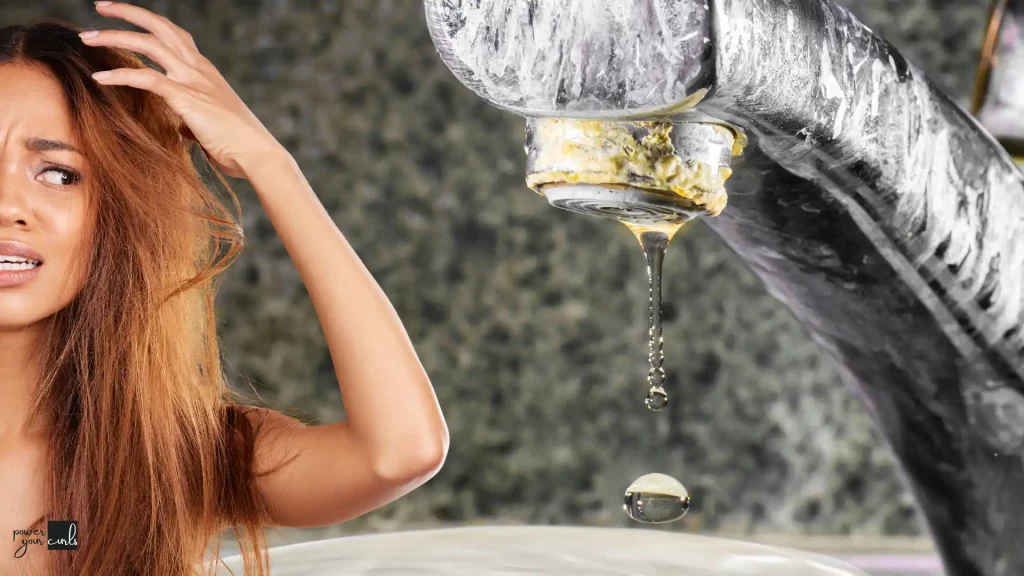
pH check: You can determine if the rainwater is acidic if its pH level is below 5.6, the normal level.
Causes of acid rain: Urban areas that have power plants burning fossil fuels, a lot of cars emitting carbon, and industrial activities cause acidic rain. Aside from this, organic emissions from forests, vegetation, and livestock manure are also responsible for the acidity of rainwater.
Prolonged drought: Dry periods with extended drought during the southwest monsoons increase the chances of acid rain.
How to Use Rainwater to Improve Hair Health
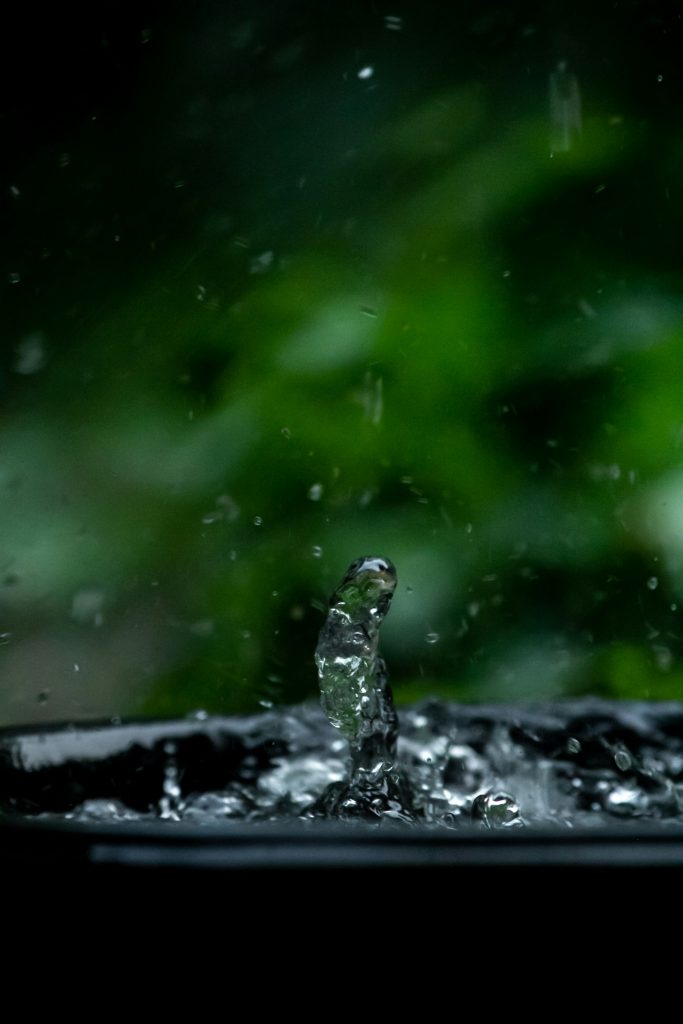
Here are simple steps to use rainwater correctly to ensure safe use and promote hair health and maintenance.
1. Collecting rainwater
First, set up a water collection system on your balcony or backyard to collect rainwater. Water collection equipment can be buckets, tubs, barrels, or other advanced tools. Cover the container with a fine-mesh screen to keep the collected water clean and free from dirt and contamination.
2. Filtering water
Next, filter the rainwater using cheesecloth, a fine sieve, or a coffee filter to ensure that the water is free from contamination and is generally clean.
3. Boiling water
Much like other liquids, boiling can be added to ensure safety in using rainwater for your hair. Boil the rainwater for at least 5 minutes and let it cool down.
4. Rinsing hair
After boiling and cooling the rainwater, use it to wash your hair after shampooing and conditioning. Filtered rainwater acts as a mild pH balancer that improves the scalp’s overall health. It adds natural shine and makes the hair smooth.
Is Rainwater Good For All Hair Types?
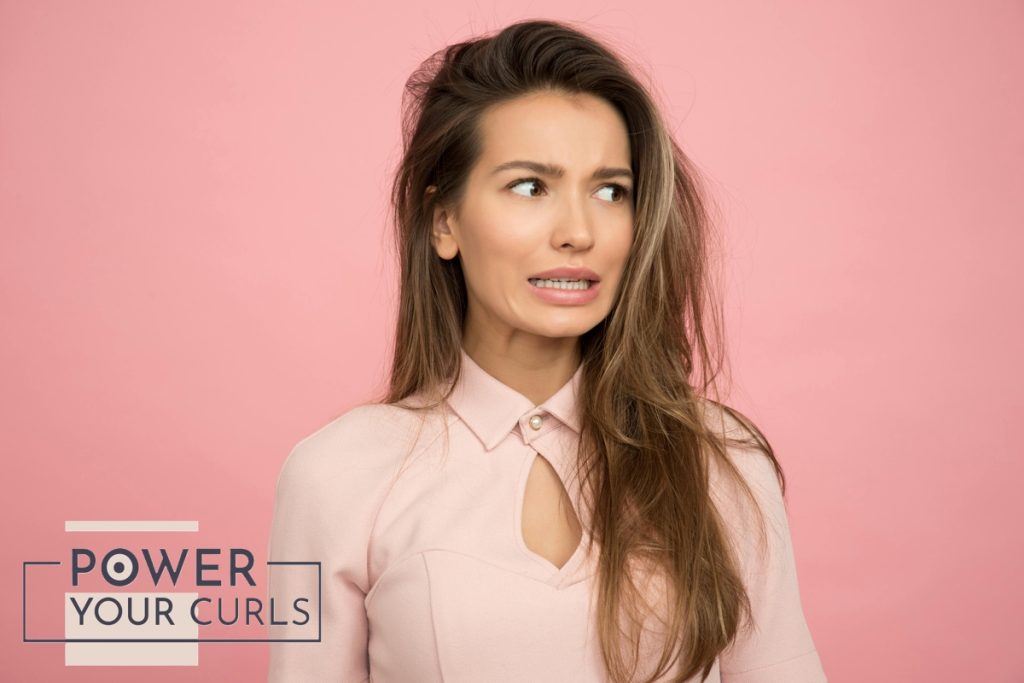
Rainwater is beneficial if it’s clean and has no impurities. But it has different effects per hair type.
Normal hair
For those with normal hair, rainwater is ideal because the natural water’s composition helps maintain the hair’s optimal pH balance, which shows enhanced shine and vitality. Rainwater can fight mineral buildup that can occur with hard water, keeping locks looking fresh and healthy. However, make sure to introduce rainwater slowly to your hair care regimen because it will allow your hair to get acclimated.
Dry or Damaged hair
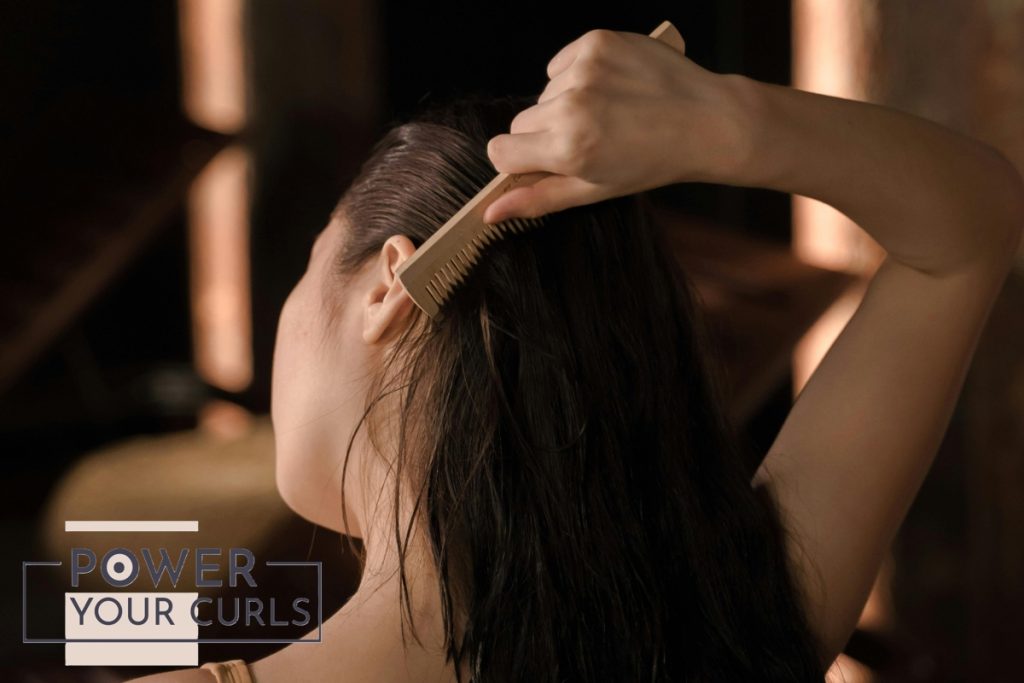
Dry hair or damaged hair can gain benefits from rainwater. It is advantageous because the purity of rainwater can help prevent further damage while offering a soothing cleansing experience.
Its purity helps moisture retention, allowing for enhanced softness and a more lustrous appearance, making it a nurturing choice for distressed locks.
Fine hair
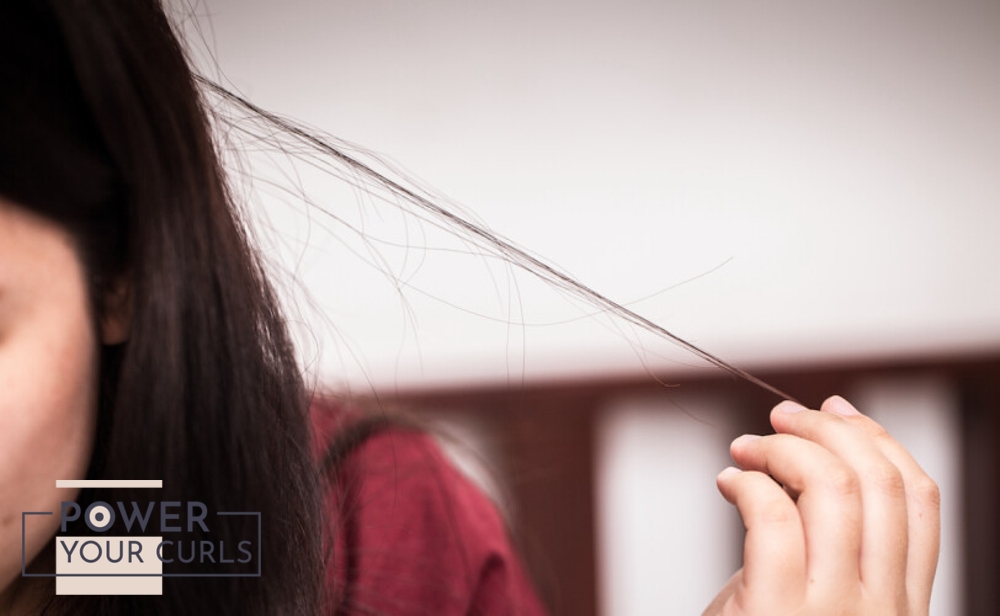
Fine hair usually appears limp and lifeless after being washed with high mineral content water. And washing with rainwater is more beneficial because the lightweight texture prevents fine strands from getting dull. Rainwater can help make it look bouncier and vibrant.
Sensitive scalp
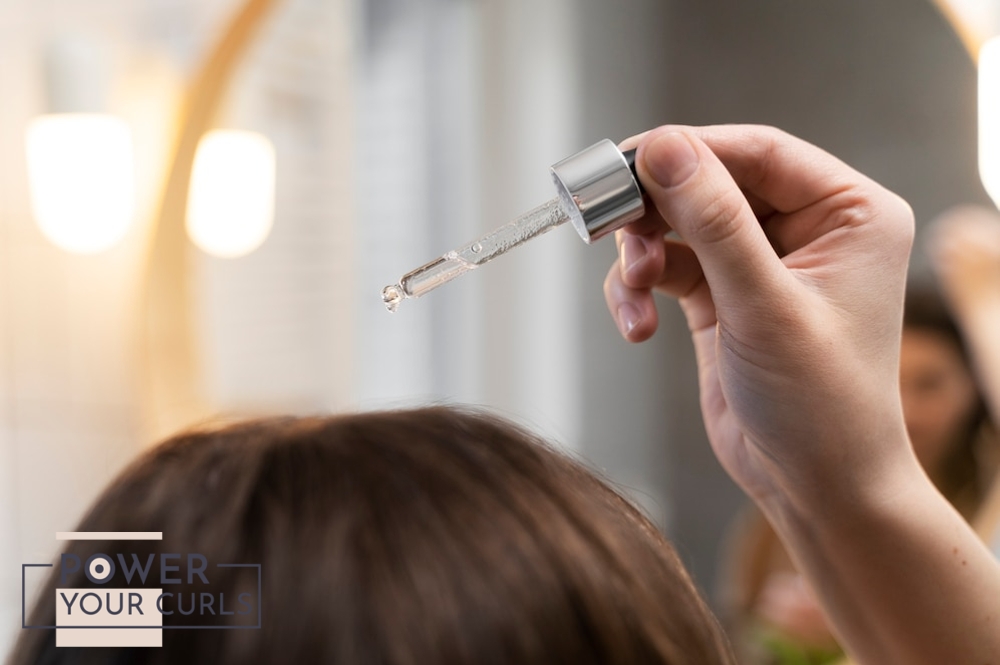
Gentle rainwater helps people with sensitive scalps. The natural qualities of rainwater help reduce the risk of irritation, itching, and discomfort. It’s much safer than tap water, which has minerals and impurities that can worsen the health of those with a sensitive scalp.
Colored or Treated hair
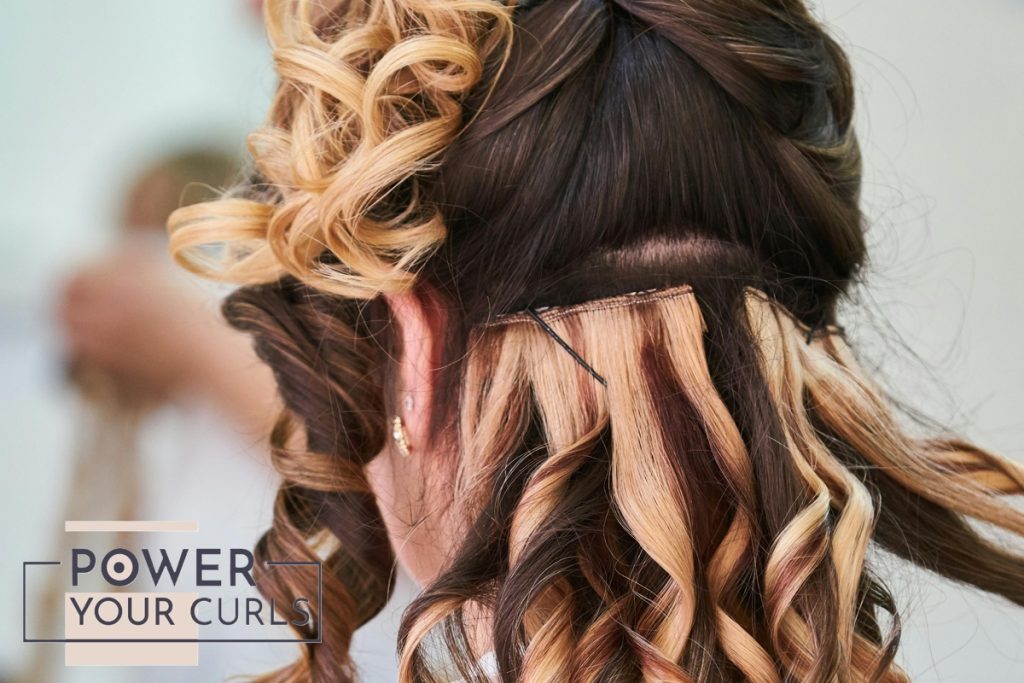
Colored or chemically treated hair can experience the benefits of rainwater in preserving hair color and quality. Pure rainwater can help maintain vibrant hues.
Curly or Coarse hair
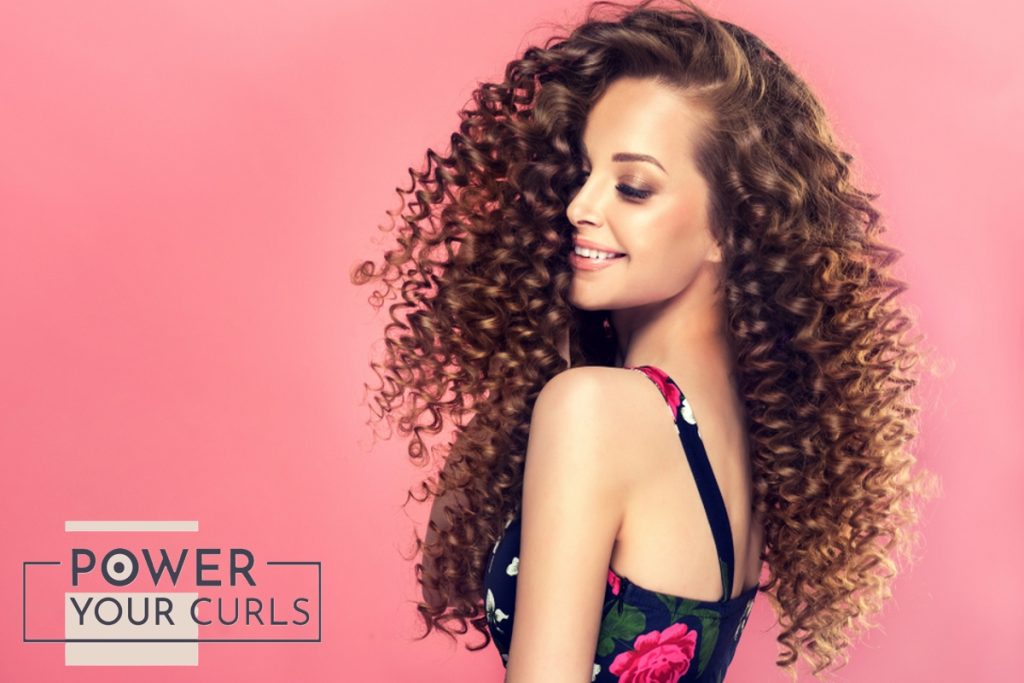
Those with curly or coarse hair tend to have drier hair quality, so washing with rainwater offers a range of advantages. Its softness and lack of harsh mineral buildup can improve curl definition and reduce unwanted frizz, resulting in more manageable and stunning curls.
However, it’s better to determine if the rainwater has moisturizing properties that can help with a unique curl pattern.
Oily hair
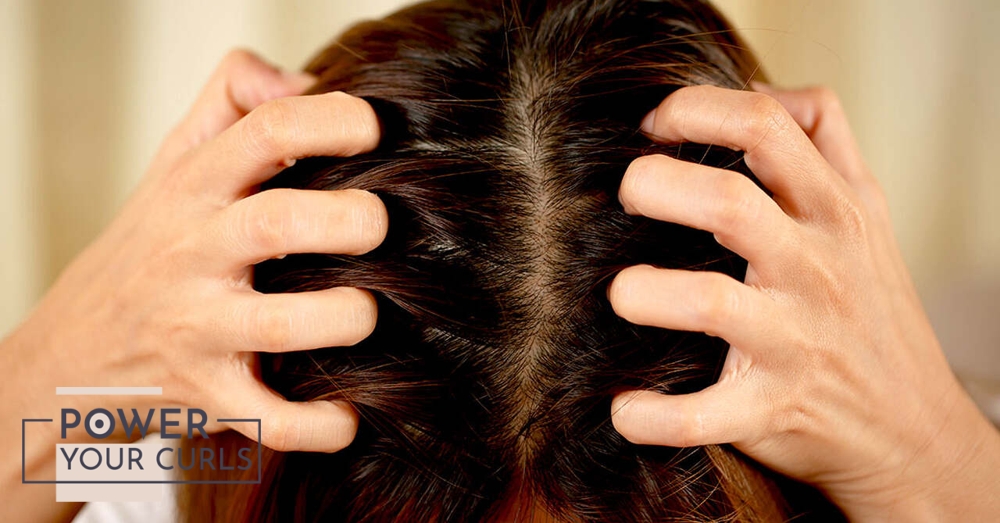
However, for those with oily hair, rainwater won’t effectively help with the excess oil on the scalp. An oily scalp usually needs commercial shampoos that can remove stubborn oil without leaving any contaminants behind.
How To Protect Hair From Acid Rain?
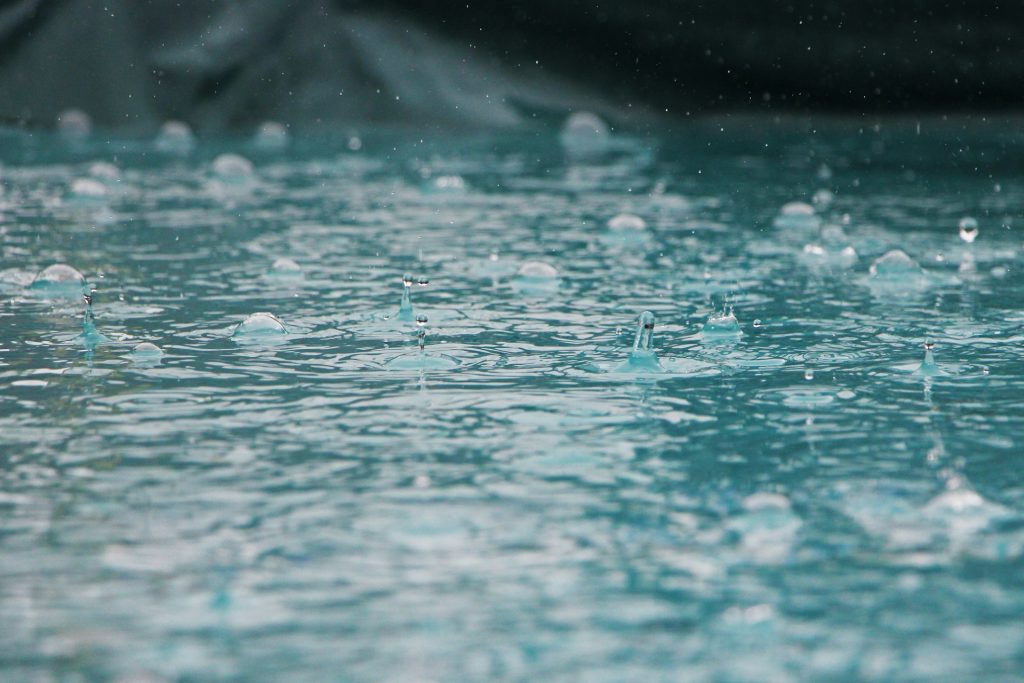
Acid rain is a lot more dangerous and a hassle when it impacts your hair. The good thing is that you can easily prevent them with these tips:
- Avoid the first rain showers – The first showers of rain are usually the most acidic ones. If you avoid this, you can prevent the effects of acidic rain showers. If you do get wet, wash it with plain lukewarm water and use conditioner.
- Let wet hair loose – Don’t tie your hair while going out in the rain, as it could get moist and can trap bacteria. As a result, hair will break on the scalp.
- Wash with leave-in conditioner or hair serum – Before leaving out in the rain, make sure to use leave-in conditioner or hair serum to help repel rainwater and minimize its negative effects.
Luckily, PowerYourCurls has the best leave-in conditioners and hair serums on its website:
Curly Ellie Intense Leave-In Conditioner & Styling Cream
Curly Ellie Leave-In Conditioner
Leave-In + Rinse Out Hydrating Conditioner
- Wear a protective cap or scarf, or bring an umbrella for protection. But make sure to apply a serum to ensure your hair is hydrated. Dry and porous hair will absorb more water and could get more acid damage.
- Dry massage the scalp. Massaging the scalp can keep the hair healthy. This can help improve the scalp’s blood circulation. You can also add warm oil while massaging the scalp.
Here are some PowerYourCurls’ products that can help with scalp massages:
Tea Tree & Jojoba Oil Hair & Scalp Oil
Elixir Essentials Hair And Scalp Oil: Collagen, Tea Tree Oil, & Eucalyptus
Rosemary Mint Scalp & Hair Strengthening Oil
- Wash your hair every other day. It can help avoid buildup, but if you have short hair, then you can wash it daily. Using an ultra-gentle/ baby shampoo is a good idea.
- Avoid excessive blow-drying. This will worsen hair health, and when exposed to the rain, it will be brittle. Use low heat if you need to use the blow dryer.
- Use a microfibre towel. Microfibre towels help absorb excess water effectively without ruining hair texture.
How to Fix Hair Damage From Acid Rain
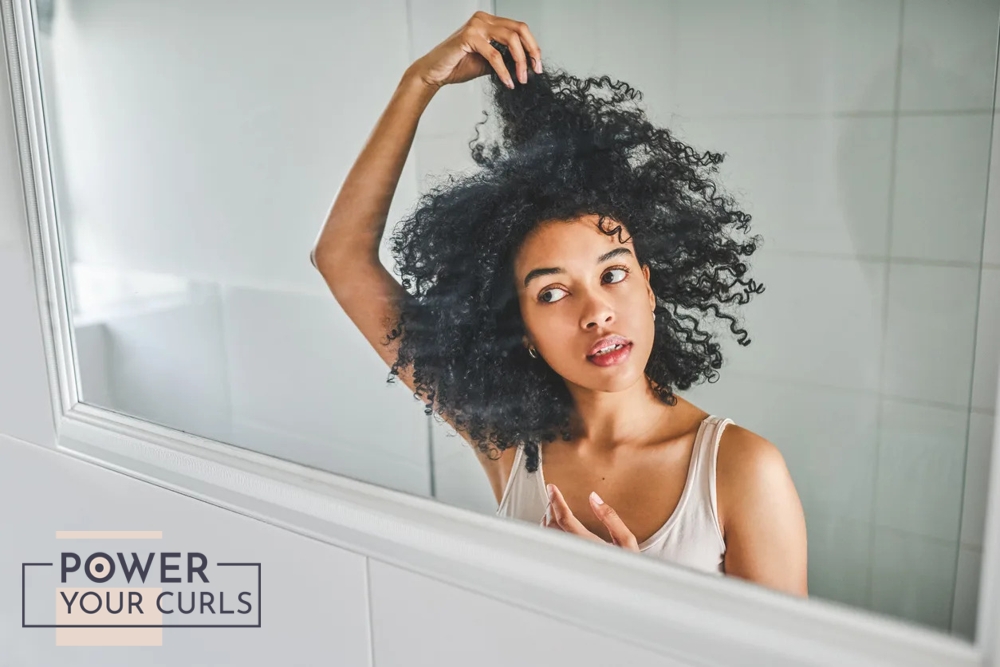
Rainwater with pH levels below 4 and 2 can cause acid burns on the scalp and damage hair. It can also turn hair brittle and weak. If exposed to acid rain, hair becomes limp and loses its shine.
Here are some techniques to address the effects of acid rain on hair.
- Repair shampoo – One way to do this is to apply repair shampoo that can help with hair damage from acid rain. It can deeply nourish hair, making it strong, silky, and healthy.
Manuka Honey & Yogurt Hydrate + Repair Shampoo
Miracle RepaiRx Strengthening Shampoo
- Rinse Hair with Soft Water – If hair is damaged from acid rain, it means it is filled with contaminants and minerals. This can be reversed by rinsing your hair with soft water, which can be achieved by installing a water filter in your house.
- Rinse with vinegar or lemon juice – Using these weak acids before any shampoo or conditioner to counteract the effects of acid rain.
- Get a hair trim – Dry hair from acid rain can be addressed through a fresh cut. Even if you have short hair, split ends can make it drier, so trimming the hair can be beneficial.
Ask your hairstylist to cut the unhealthy hair and what weighs down fresh hair growth. You can also ask for tips on maintaining hair health.
- Take vitamins— Certain vitamins nourish your body, but vitamins directly impact the health of hair and nails. Take vitamins like Vitamin A, Vitamin C, biotin, and iron to help nourish hair.
- Omega-3s and antioxidants in your diet – Eat marine proteins because they prevent hair from thinning and can make hair look shinier. Consume salmon, oysters, mackerel, tuna, and sardines because they are rich in peptides and omega-3s that can improve hair shine.
Eat food that contains antioxidants as well to combat oxidative stress, which is responsible for making hair look older. These foods include nuts, kidney beans, blueberries, broccoli, and tomatoes.
